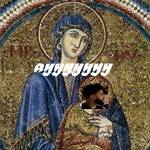A budding artistic co-op
by Nicholas Syrianus Katsafanas
Reimi and Buddy share what can only be deemed God-given honest opinions that they have every right to express on their trip to East Asia. Then Reimi and her sister Nikke take in an anonymous French Mannerist's painting. Finally, Reimi shares with Buddy a particularly noteworthy month-long dip into insanity her sister Nikke recently endured.
Mode: >.75
1st Edition Released: 12/24/25
ISBN: 979-8-9987102-8-5
102 pp.
5.5" x 8.5" Paperback, Saddle Stitched
Released: Jan. 12 2026
Blue Hydrangea
by Katreena Dayacap Katsafanas
Blue Hydrangea is a Zuihitsu of considerable scope and depth, perhaps the best example of the genre in recent American literature in my view. Katreena at her peak powers becomes one with the pen, not metaphorically, but actually synthesizing herself with the writing utensil until the subject-object assumption becomes a product of absurdist fiction.
From the Poet: "Nothing can separate love, and I know this to be true. Gathering my thoughts, journal entries, poetry and prose from the last eight years has been incredibly difficult. I held off for a very long time in fear of bringing myself through those painful memories before, during and after my mother’s death. But here it is. By finally opening up to all the change since my mom passed, I’m able to find inner peace and with that, true healing. I love you, Mom. I prayed and hoped that we would beat cancer. We fought against your disease together and gave each other strength through that unimaginable struggle. I know you are with me in spirit and there helping me rebuild my life and become open to all that has changed since I lost you. I know it is natural for me to miss you, even now. I wish we could make new memories together, but I hope you know that the memories of the time we spent together will always bring me happiness." - Tree
(c) 2025 Katreena Dayacap
5x8 Perfect Bound
ISBN: 979-8-9987102-5-4
Released: Sep. 3 2025

2,650 Syllables of Authentic Reflection
by Nicholas Syrianus Katsafanas
These three cantos cut to the deepest parts of my life. They're basically my autobiography. Nothing else could be more important about my experience on this planet than what's expressed in these, approximately, 2,650 syllables.
1st Edition Released: 01/31/2026
Mode: >.75
2226:2647 .841
32 pp.

The World Divides Into Facts
by Nicholas Syrianus Katsafanas
Reimi and Buddy share what can only be deemed God-given honest opinions that they have every right to express on their trip to East Asia. Then Reimi and her sister Nikke take in an anonymous French Mannerist's painting. Finally, Reimi shares with Buddy a particularly noteworthy month-long dip into insanity her sister Nikke recently endured.
Mode: >.75
1st Edition
137 pp.
ISBN: 979-8-9987102-8-5
Release Date: 12/24/2025

S+P (Σύννεφο και Πρίαπος)
by Nicholas Syrianus Katsafanas
Cloud Strife and Priapus, both virtually depicted with shifting images depicted across eras—from Playstation 1 to Playstation 5, from Ancient Athens to Imperial Rome—one holding a Buster Sword that's, of course, vaguely phallic, and the other holding a large phallus that's, of course, often used as a deadly weapon, both tortured via an ambiguous demigod-adjacent genetic lineage (Jenova and Aphrodite?)—S+P investigates, both directly and via specific character digressions, these two confounding mirror images over the course of its 20 modal cantos.
Mode: >.667
1st Edition
239 pp.
ISBN: 979-8-9987102-7-8
Release Date: 10/31/2025



